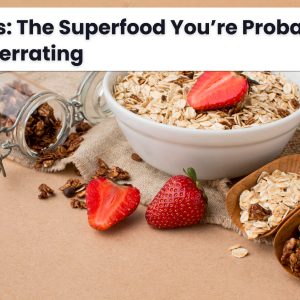
Plant-Based Diet: Health Benefits & How to Get Started
A plant-based diet has become one of the most talked-about lifestyles in recent years, thanks to its numerous health, environmental, and ethical benefits. Whether you’re looking to improve your well-being or reduce your environmental footprint, adopting a plant-based diet can be a transformative step. Let’s explore what a plant-based diet entails, its benefits, and how to transition to this healthy and sustainable lifestyle.
What is a Plant-Based Diet?

A plant-based diet focuses primarily on foods derived from plants, such as:
- Fruits and vegetables
- Whole grains (e.g., oats, quinoa, brown rice)
- Legumes (e.g., beans, lentils, chickpeas)
- Nuts and seeds (e.g., almonds, flaxseeds, chia seeds)
- Plant-based oils (e.g., olive oil, avocado oil)
While a plant-based diet emphasizes plant foods, it doesn’t necessarily exclude all animal products. Some people choose to occasionally include fish, eggs, or dairy, while others follow a completely vegan diet.
Benefits of a Plant-Based Diet
1. Improved Heart Health
Plant-based diets are naturally low in saturated fats and cholesterol, which helps reduce the risk of heart disease.
- Why it works: Foods like fruits, vegetables, whole grains, and nuts are rich in fiber, antioxidants, and healthy fats, which improve cardiovascular health by lowering bad cholesterol (LDL) levels and enhancing arterial function.
2. Weight Management
Switching to a plant-based diet can help you maintain or lose weight.
- Why it works: Plant foods are nutrient-dense but lower in calories. High-fiber meals keep you feeling full longer, reducing overeating and promoting healthy weight loss.
3. Reduced Risk of Chronic Diseases
Plant-based eating has been linked to lower risks of diabetes, cancer, and hypertension.
- Why it works: Whole plant foods contain powerful antioxidants and anti-inflammatory compounds that protect cells, stabilize blood sugar, and lower blood pressure.
4. Better Digestive Health
Plant-based diets support a healthy gut through their high fiber content.
- Why it works: Fiber promotes regular bowel movements and feeds beneficial gut bacteria, reducing issues like constipation and irritable bowel syndrome (IBS).
5. Environmental Benefits
Plant-based eating is a more sustainable option for the planet.
- Why it works: Producing plant-based foods requires fewer resources, like water and land, and generates fewer greenhouse gases compared to meat and dairy production.
6. Ethical and Animal Welfare Considerations
Reducing or eliminating animal products supports more humane practices and aligns with ethical values of compassion and respect for all living beings.
How to Get Started with a Plant-Based Diet

Transitioning to a plant-based diet can seem overwhelming at first, but taking small, manageable steps can make it easier. Here are some practical tips:
1. Start with One Plant-Based Meal a Day
Ease into the lifestyle by replacing one meal with a plant-based option.
Example:
- Breakfast: Oatmeal topped with almond butter, bananas, and chia seeds.
- Lunch: A colorful salad with quinoa, avocado, and chickpeas.
- Dinner: Stir-fried vegetables with tofu and brown rice.
2. Focus on Whole, Unprocessed Foods
Minimize reliance on packaged plant-based products and instead opt for natural, minimally processed ingredients.
- What to include: Fresh fruits, leafy greens, whole grains, nuts, seeds, and legumes.
3. Experiment with New Recipes
Discover the wide variety of delicious plant-based meals to keep your diet exciting and enjoyable.
Ideas:
- Lentil soup with fresh herbs.
- Black bean tacos with salsa and guacamole.
- Buddha bowls with roasted vegetables and tahini dressing.
4. Plan and Prep Your Meals
Meal prepping ensures you always have nutritious options on hand, reducing the temptation to reach for less healthy foods.
- Pro Tip: Batch cook grains and legumes, and prepare snacks like hummus with veggie sticks.
5. Gradually Reduce Animal Products
If you’re not ready to give up meat or dairy entirely, take it one step at a time.
- Simple swaps: Replace cow’s milk with almond or oat milk, or use beans instead of ground meat in recipes.
6. Ensure Balanced Nutrition
A well-balanced plant-based diet includes all essential nutrients. Pay attention to:
- Protein: Lentils, tofu, tempeh, and nuts.
- Calcium: Fortified plant-based milk, leafy greens, and sesame seeds.
- Iron: Beans, spinach, and fortified cereals.
- Vitamin B12: Supplements or fortified foods.
Summary
Adopting a plant-based diet offers numerous benefits for your health, the planet, and animal welfare. By focusing on whole, nutrient-dense foods and making gradual changes, you can create a sustainable lifestyle that aligns with your goals. Whether you choose to go fully plant-based or simply incorporate more plant-based meals into your routine, every step toward this lifestyle makes a difference.
FAQs for “Plant-Based Diet Benefits and How to Get Started”
What is a plant-based diet?
A plant-based diet focuses on consuming whole foods derived from plants, such as fruits, vegetables, grains, legumes, nuts, and seeds, while minimizing or excluding animal products.
How does a plant-based diet differ from veganism?
While veganism eliminates all animal products entirely, a plant-based diet focuses on eating primarily plants but may occasionally include small amounts of animal products.
What are the main health benefits of a plant-based diet?
Benefits include improved heart health, better weight management, enhanced digestive health, reduced risk of chronic diseases, and a stronger immune system.
Can I get enough protein on a plant-based diet?
Yes, you can get adequate protein from plant-based sources like lentils, beans, tofu, tempeh, quinoa, nuts, and seeds.





